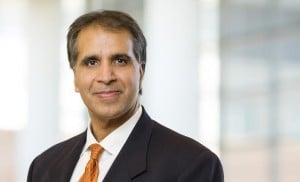
Covid- 19 which had its first cases in Zimbabwe in February 2020 has now claimed a life with 9 people confirmed to be positive and undergoing treatment. Throughout the world, we have USA, China ,Italy and Spain among the most hit with the virus spreading like veld fire to the whole world causing devastating socio-economic and political challenges.
PYCD is cognizant of the unprecedented colossal threat that this rabid pandemic presents to the life of our local community in Chipinge and the nation at large. PYCD share the broken hearts of communities in Zimbabwe on the realization that the pandemic has come at a time when our health delivery service is at its most dysfunctional. Chipinge and Mutare do not have adequately equipped centres for COVID – 19 cases.
PYCD is a community based organisation with limited capacity but have put in place a campaign to deal specifically with awareness and monitoring through advocacy. Our intervention focused on demystifying social myths associated with the COVID – 19 pandemic, through provision of verifiable easy to grasp information. The information is packaged in such a way to ensure that every community is provided with adequate information that tells them everything they need to know to prevent themselves and at the same time play a critical role in curtailing the spread of COVID -19. Adequate information is the only tool that can empower local communities to take care of themselves and have a sudden consciousness of our common objective of curbing the spread of COVID – 19 in the district. COVID – 19 is a behavior related crisis, and information plays a critical role in regulating personal behavior.
Our involvement so far has put in place a three week based intervention divided into three phases that will be reviewed after the 21 Days of the official lock down.
First Week – 30 March to April 6 2020
PYCD has just finished this phase in which we were using the social media, and in particular our WhatsApp, Facebook and Twitter accounts to encourage the public to respect the directive from government to stay at home. There were a lot of misconceptions that were being spread by other unscrupulous elements dismissing COVID 19 as a curse on the western countries and unable to hit Africans but countries in the first world. Some of the social myths that we endeavored to address included that kids and even Africans cannot contract the Covid-19 and that only those who can afford to travel to countries hard hit by the virus can contract the virus. Our just concluded week involved sharing important information on the number of people who were being affected and how deadly the disease was affecting other countries from the globe.
We observed that non-compliance on the observance of social and physical distancing has been due to cultural interpretations of COVID – 19 pandemic. The Ndau cultural aspects have a great influence on the processes of symptom recognition, labeling and help-seeking including peoples’ decision to attend or to ignore pronouncements made on measures to curb the spread of COVID – 19.
PYCD is saddened by the heavy handedness of our security sector in enforcing the Presidential pronouncement on the measures to curb the spread of COVID – 19. This is an opportunity for the government to prove its worth to the general populace through the provision of assurance and safety of our communities.
Social and economic challenges remained an inhibiting factor in our local communities in addressing the COVID -19 scourge. As a community based organization, PYCD is literally present in the community where people live their lives with enormous outreach in the district. No one is any longer in doubt about the nature and size of the COVID – 19 pandemic. Chipinge district has weaker health systems and limited capacity to handle surges in cases. Thus, the situation creates distributional inequalities as the government is more focused on national health institutions in major cities. The poorest districts in our country are often the most vulnerable since they have fewer pandemic response resources—fewer health workers and clinics and less medicine. As the COVID – 19 is beginning to assert itself, the local communities are more likely to have already been suffering from malnutrition and immunosuppressive conditions, which can increase susceptibility to COVID – 19.
At the time of writing, people are queuing for basic commodities in Checheche, and humanitarian organisations will be distributing food handouts to vulnerable communities in Chinyamukwaka, Chisumbanje, Mahenye and surrounding areas. This includes the department of social welfare.
Face Masks, hand gloves and sanitizers as well as basics increased in terms of prizes due to some unscrupulous elements that are bent on taking advantage of the crisis.
The general public responded positively to the call for the stay home but there is a growing fatigue which might create challenges mid -way toward the end of the 21 -day period of the declared days.
Second Week-7 April to 14 April 2020
PYCD will use this period to share observations and opinion on the way the public and stakeholders are responding to COVID 19.This period will involve some of the PYCD staff having to take outdoor assignments to verify cases and incidences warranting attention. This will be part of a monitoring exercise. Government of Zimbabwe has introduced intervention methods aimed at cushioning the vulnerable and less privileged public who are struggling to survive the stay home campaign. Activities by government through the covid-19 taskforce will be monitored to check transparency and accountability in the manner they are distributed.
Third Week-15 April to 21 April 2020
During this period PYCD will be focusing on the lessons learnt during the lockdown period with the aim of going beyond the lockdown and COVID -19.Lessons drawn from our work and our networks will be used to make up recommendations for government on how to respond to emergencies and natural disasters. PYCD will also be drawing lessons from the Cyclone Idai disaster that struck in Zimbabwe
Post published in: Featured



 A police water canon sprays disinfectant over residential flats during a 21-day nationwide lockdown called to help curb the spread of coronavirus disease (COVID-19), in Harare, Zimbabwe, April 3, 2020. REUTERS/Philimon Bulawayo
A police water canon sprays disinfectant over residential flats during a 21-day nationwide lockdown called to help curb the spread of coronavirus disease (COVID-19), in Harare, Zimbabwe, April 3, 2020. REUTERS/Philimon Bulawayo


 Tom Kulik is an Intellectual Property & Information Technology Partner at the Dallas-based law firm of
Tom Kulik is an Intellectual Property & Information Technology Partner at the Dallas-based law firm of 


 Vikram Amar is the Dean of the University of Illinois College of Law, where he also serves the Iwan Foundation Professor of Law. His primary fields of teaching and study are constitutional law, federal courts, and civil and criminal procedure. A fuller bio and CV can be found at
Vikram Amar is the Dean of the University of Illinois College of Law, where he also serves the Iwan Foundation Professor of Law. His primary fields of teaching and study are constitutional law, federal courts, and civil and criminal procedure. A fuller bio and CV can be found at  Julie S. Schrager has worked as Schiff Hardin’s in-house legal writing coach for almost twelve years. In that role, she works one-on-one with the firm’s summer associates, associates, and partners to improve their legal writing skills. She also hosts workshops addressing common legal writing challenges, including writing persuasively, writing for business development, and revising and editing your own work. Julie also participates in Schiff’s recruiting efforts by hosting writing workshops for 1Ls at law schools around the country and through diversity programs.
Julie S. Schrager has worked as Schiff Hardin’s in-house legal writing coach for almost twelve years. In that role, she works one-on-one with the firm’s summer associates, associates, and partners to improve their legal writing skills. She also hosts workshops addressing common legal writing challenges, including writing persuasively, writing for business development, and revising and editing your own work. Julie also participates in Schiff’s recruiting efforts by hosting writing workshops for 1Ls at law schools around the country and through diversity programs.






 Kathryn Rubino is a Senior Editor at Above the Law, and host of
Kathryn Rubino is a Senior Editor at Above the Law, and host of 
 Olga V. Mack is the CEO of
Olga V. Mack is the CEO of